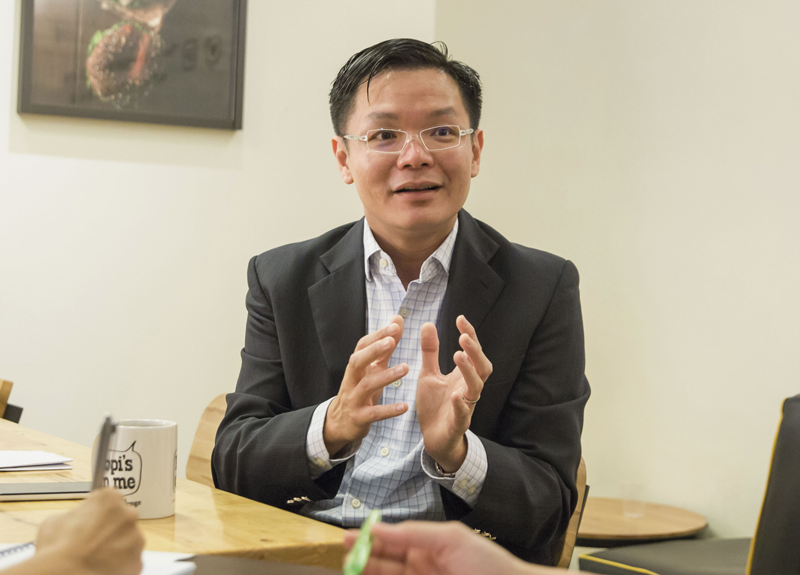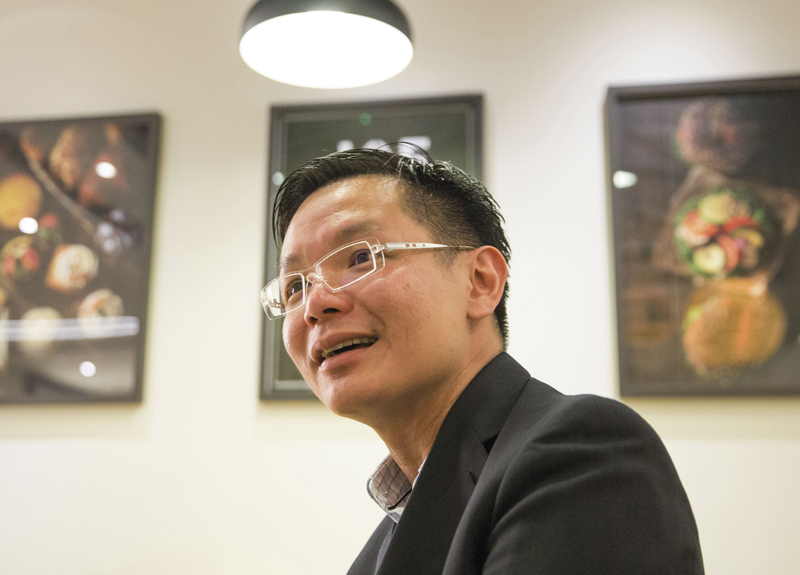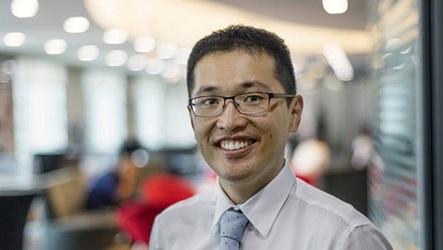“Manpower Is A Bottleneck, And It Will Continue To Be”

In his 19 years in the Public Service, Mr Ng Cher Pong has come across a number of jobs that simply ceased to be. “Remember when we used to have typists, and when we needed text amended we would pass it to them?” he recalled. “That’s disappeared!”
In a sobering interview, the Singapore Workforce Development Agency (WDA) Chief Executive pointed out the hard truth that all working adults in Singapore need to grapple with: the risk of being unemployed one day as our current job may become obsolete in our lifetime.
And the most vulnerable are not the low-skilled workers, but the middle-skilled ones who face a global trend of such jobs disappearing. Skills acquired in school will also lose their relevance faster than before.
This is particularly true for jobs that could be replaced by technology, where change is accelerated. Even within the Public Service, already, librarians’ duties no longer include stamping due dates on books now that there are self-borrowing machines.
“Such changes mean that people need to … proactively plan for their own learning to prepare for the future,” stressed Mr Ng, who joined the WDA in 2013.
Since SkillsFuture, the national movement for lifelong learning and professional development, was announced by Prime Minister Lee Hsien Loong in August 2014, Mr Ng has focused on mobilising the entire WDA team of about 700 officers to support it.
Specifically, WDA is the lead agency for the upcoming SkillsFuture Credit scheme, an inter-agency effort that will provide every Singaporean aged 25 and above with an initial credit of $500 that they can use to attend a wide range of training courses. This is to make it easier and affordable for everyone to keep developing their skills throughout their lives. To hammer out the details, which include regular top-ups, Mr Ng created a new team within the WDA to work closely with the Ministry of Finance and other public agencies that support training programmes.
To support the SkillsFuture movement, the WDA also underwent a major re-organisation last year, which affected up to 70% of the staff. The WDA was restructured around the three key groups of stakeholders, namely companies, workers and training partners. Besides extensive planning, open staff feedback had been pivotal, said Mr Ng.
“We communicated regularly and at different levels. I did so at townhalls and via an internal platform known as Woogle, while the heads of departments organised one-on-one sessions with the affected staff. This proved to be helpful in allaying staff concerns.”
Referring to the SkillsFuture Credit, Mr Ng added that “the WDA had not previously implemented a project of this scale… I’m most proud of how WDA responded to SkillsFuture.”
Partnering employers
It is not just workers who face an uncertain future. Bosses, too, grapple with a tight labour market and have no choice but to do the same job (or more) with lower headcount.
The WDA teams are therefore working with every key industry to come up with sector-specific manpower plans, to define how each would transform by 2020, identify the potential challenges, and how to respond to these challenges.

They also help employers “upskill” to attract talent. In the food industry, for example, Mr Ng’s team has helped Indian restaurants, struggling to hire locals, to understand how they can create more modern kitchens that are attractive to aspiring cooks. Likewise, persuading Chinese restaurants to use smaller woks and cleaner induction cooking methods could draw female chefs, without compromising the food’s taste.
Compared with his last posting as Deputy Secretary (Policy) at the Education Ministry where he led a team of about 400 in background policy work, Mr Ng’s current role commands greater public visibility.
“Being on the frontline is a big change for me, personally,” said the 43-year-old, who regularly lunches with his staff. “But delivering SkillsFuture really requires nurturing a web of relationships between all the relevant organisations, and people, which takes time and effort.”
His WDA teams try to understand the concerns on the ground while explaining SkillsFuture, and find ways to make it relevant to the people.
“For example, some employers continue to adopt qualifications-based rather than skills-based recruitment practices. So we take a practical approach and move forward with the more progressive stakeholders, while at the same time, continue to persuade other stakeholders to come on board SkillsFuture.”
Steering with moral courage
Mr Ng’s leadership philosophy is to keep an honest relationship with his staff. By that, he means that staff should not shrink from telling their bosses if they think something would not work.The history buff has followed this tenet since as a youth, he came across the story of Vasa, a 17th century Swedish warship that sank on its maiden voyage because none of its shipbuilders had dared to tell the commissioning king that having 72 cannons, which needed a double gun deck, would overload the ship.
“When we have projects with tight timelines and ambitious requirements, you don’t want a situation where no one dares to tell the boss that we can’t deliver,” said Mr Ng, who hangs a poster of the ship at home.

In his career, he has been fortunate to work with public officers who did not shy from the truth. For instance, the government acknowledged its mistake when it over-compensated $388 million in 1997 to SingTel for the service provider’s loss of monopoly.
“It would have been much easier to ignore it and move on; doing so would have avoided any potential embarrassment for the government,” said Mr Ng, who was then a Deputy Director at the Ministry of Communications and IT. “However, at no time was such an option raised.”
The same honesty works in reverse. As far-fetched as it may sound, some bosses do have a hard time delivering bad news.
“It’s easy to tell how wonderful a job a person has done. But most of us feel guilty detailing poor performance,” said Mr Ng.
“I do, however, firmly believe that there should be no surprises. If you are regularly open and upfront with the officer, he or she can decide to stay and work on the gaps, or leave. Bosses should have the moral courage to tell individuals what they truly think of their performance.”
Well, that is one principle that should never become obsolete.

What's in your cuppa?
Coffee, either black or with some
milk and sugar.
Where do you take it?
I have a coffee machine at home
and I enjoy my cuppa in the
morning and evening.
- POSTED ON
Nov 9, 2015
- TEXT BY
Wong Sher Maine
- PHOTOS BY
Norman Ng
-
Profile
Mr Andrew Er, WDA









